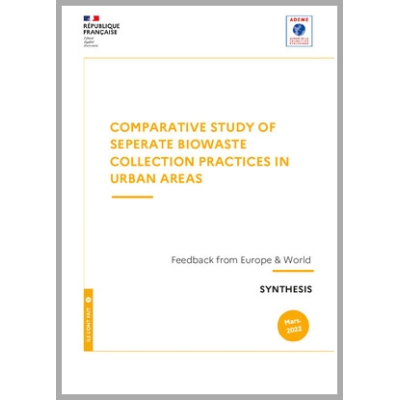Étude comparative des pratiques de collecte séparée des biodéchets en milieu urbain
Synthèse d'expertise
Mis en ligne le : 16/03/2022

Feedback from Europe & World - synthesis
With this study, ADEME offers an overview of the separate collection practices of biowaste (more specifically food waste) in 13 large cities in Europe and North America. What are the difficulties encountered, the solutions found, the common points, what success factors, what lessons can we draw from them for French cities? Different solutions are found depending on the case study. Examples which interest French communities are those cities that manage to mobilize the most inhabitants to sort and collect food waste separately, that have in common in particular:
With this study, ADEME offers an overview of the separate collection practices of biowaste (more specifically food waste) in 13 large cities in Europe and North America. What are the difficulties encountered, the solutions found, the common points, what success factors, what lessons can we draw from them for French cities? Different solutions are found depending on the case study. Examples which interest French communities are those cities that manage to mobilize the most inhabitants to sort and collect food waste separately, that have in common in particular:
Documents associés
Synthèse d'expertise
Mis en ligne le : 16/03/2022
Comparative study of seperate biowaste collection practices in urban areas